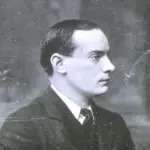
We’re now in the midst of the 95th anniversary of the Easter Rising of 1916 – one of the most important events in Irish history.
To mark the occasion, Irish Music Forever, has published a series of articles giving the background to the Rising, explaining what took place and analysing its impact.
The rising began on Easter Monday when about 1,600 Irishmen from different political groups seized control of some of the key buildings in Dublin.
Patrick Pearse proclaimed a new Irish Republic
Then one of the leaders, Patrick Pearse, stood outside the General Post Office and read the famous Proclamation declaring that they were the Provisional Government of a new Irish Republic.
The Rising was short lived. The British authorities reacted quickly. Within days they had 16,000 troops in Dublin and the rebels were quickly surrounded.
Hopelessly outnumbered and facing superior firepower, the rebel leaders had no choice but to surrender. The Rising was unpopular with many Irish people at that time and some even jeered the rebels as they were led away.
Execution of leaders outraged Irish public opinion
However, public opinion quickly changed when the rebel leaders were executed by firing squad. The Irish public thought the British had over-reacted with unnecessary brutality.
Ordinary Irish people who had previously been indifferent or even hostile to the thought of Home Rule, suddenly started to support it.
Soon the groundswell of opinion became impossible to ignore. There were still many twists and turns in the story but the Irish Free State was formally established in 1922.
Click through to our series of readable articles on the Easter Rising to find out more.
Foggy Dew – one of the best songs from the Easter Rising
The Foggy Dew is probably the best song to come out of the Easter Rising.
Its basic theme is to lament that so many Irish soldiers died while fighting for Britain during the First World War when they could have been at home in Ireland fighting for Irish independence.
Main Groups:
Political background
Irish Republican Brotherhood
Irish Volunteer Force
The Fighting:
The Rebel Plan
The Rebels Attack
The British Reaction
Aftermath:
Leaders executed
Public Reaction
